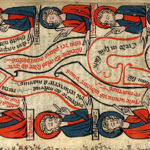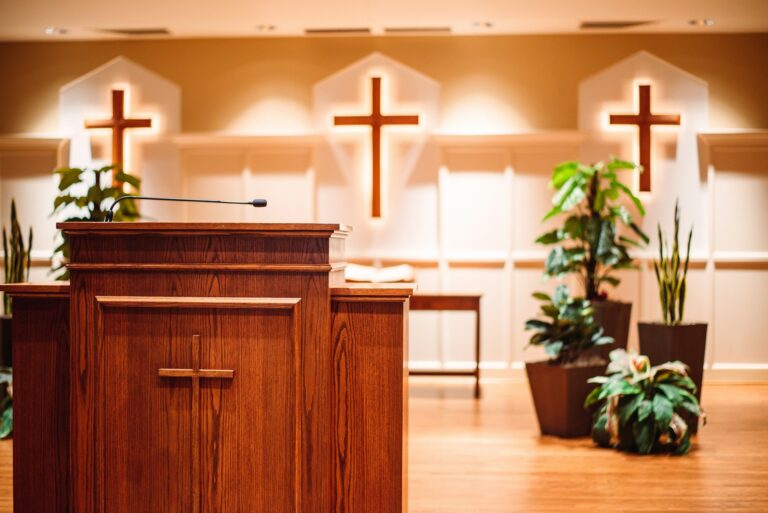A few years ago, while I was studying at Regent College, I was introduced to the thought of Herman Bavinck. It was during one of my theology courses when Dr. Ross Hastings had us read a portion of Bavinck’s Reformed Dogmatics that I first became intrigued. After this, I took the big step of purchasing the whole four-volume set—on my measly seminary student budget—and began to read.
I eventually worked my way through this, and I can confidently say that Bavinck’s thought has deeply impacted how I think theologically.
When I prepare sermons, write articles, or whatever else it might be, Bavinck is likely in the back of my mind. However, I have noticed that not as many people as I might have thought have read him. While his name seems to be increasing in popularity amongst Reformed circles, the people I interact with on a daily basis either have not heard of him, or have heard of him but have not read any of his works.
Recently, I have been doing some reading on Bavinck in preparation for more academic study and once again I have fallen in love with this great theologian. I would like to share that love, and so it is my hope in this article, to demonstrate to you why I think Bavinck is someone worth reading.
Biography
Herman Bavinck was born in the Netherlands in 1854 to Jan and Geziena Bavinck. The Bavinck family was a part of the Seceder Church in the Netherlands meaning that they had separated from the state Reformed church. The reason for this separation was the spiritual and moral laxity amongst the mainline church as well as an obvious shift towards liberal theological positions that denied things like the physical resurrection of Jesus Christ. Like most secession groups they were not well-liked for this move.
John Bolt writes, “The Christian Reformed community of the nineteenth century was a dissenting community that had separated itself from the National Church, was preoccupied with purity of doctrine and holiness of life, insisted upon church discipline and a biblically-based polity, and occupied a marginalized position out of step with the mainstream of Dutch culture and society.”[1]
In other words, Herman Bavinck was raised in a church that was seen much like many evangelicals today, “backwards.” Despite this Herman Bavinck’s parents were cautious to raise their children not to hate modern culture as evil, but to appreciate aspects of it including the sciences.[2] Ultimately, the Bavinck household was one that had deep Christian convictions and in it there existed a “distinctively Christian life and worldview” but they were not afraid of modern influence.[3] Instead they trusted the regenerative power of God and his sovereign will in their lives.
A good example of how this played out was when Herman was deciding on where he would complete his theological education. As the son of a pastor in the Seceder movement, it was expected that Bavinck would attend the University of Kampen. Kampen was basically the local Bible College that all future Seceder ministers should attend. It functioned similarly to Briercrest, Columbia Bible College, or Prairie Bible Institute in my denomination—the Mennonite Brethren—here in Canada.
Yet, Herman Bavinck had a desire to study at the University of Leiden. This was a very liberal school. Abraham Kuyper relates a time when the theological students at Leiden gave a standing ovation to a professor for denying the physical resurrection of Jesus Christ. Many people were concerned for young Bavinck’s soul if he made this decision. Many people were critical of his father for allowing him to make this move. Yet, Herman Bavinck decided to study theology at Leiden nonetheless. This wasn’t because Kampen was a bad school, Bavinck would spend most of his life as a professor of theology at Kampen. Rather, it was because Bavinck had a desire to be conversant in the theology that he was criticizing.[4]
He wanted to explore modernity so that he could better critique it as a Christian and compellingly show why the gospel offers a better way. These years of study at Leiden ultimately served his theological understanding and gave him “firsthand insights into the theologies and theological methodologies of those he would later critique.”[5]
In my humble opinion, this is a good example of how the Christian should think of education. If God is sovereign over all things, then we should not fear someone “losing salvation” if they go to a liberal university. After writing and defending his dissertation Bavinck was awarded a Doctorate of Theology and spent the rest of his life as a pastor, a theologian, a writer, and even a politician. Why, then, is Herman Bavinck worth studying? Three reasons:
Modern yet Orthodox
Bavinck’s thought shows a deep desire to be both an orthodox—and in his case Reformed—Christian as well as a modern man.
Clearly, Bavinck did not see it as a virtue to close one’s eyes to the truths that modern culture had unearthed. He was no escapist.
Bavinck, due to his deep belief that God was sovereign over all, wanted to evaluate modern scientific culture and take from it what was valuable, and leave behind what was not. Just because some unwelcome characters were using modernity as an excuse to popularize Christianity by removing the miraculous, this did not mean that everything modernity produced was bad.
Bavinck believed that modern culture needed to be “Christianized” not that Christianity needed to be “modernized.”[6] He writes in an essay entitled “Christianity and Natural Science,” “It is undeniable that our modern culture owes its existence mainly to the extraordinary progress of natural science and the application of its technical inventions.”[7] This does not sound like a man who is opposed to modern culture.
Likewise, Bavinck wrote on a number of topics that shows his desire to interact with the culture at large. Some titles of his essays include: “The Psychology of Religion,” “Evolution,” and “Christian Principles and Social Relationships”. All of these titles show the relevance of Bavinck’s thought for his time and—arguably—even for today. Many of the questions he is seeking to answer in these essays are questions that we still ask.
Bavinck even took the time to write on beauty and art arguing that all beauty finds its source in the mind of God; “The acknowledgement of this spiritual beauty is the prerequisite for maintaining beauty in its supersensory reality.”[8]
Bavinck was an orthodox theologian who sought to “incorporate the biblical worldview into the philosophies and ideologies of his time.”[9] He was a modern but orthodox man seeking to show how the biblical worldview spoke to all areas of life. This leads right into the second reason why you should read Bavinck.
The Gospel Is for All of Life
Herman Bavinck did not see salvation as something between “me, myself, and God.” For him, salvation was something that impacted all of life. Don’t get me wrong, the gospel is about Christ’s propitiation on the cross for my sins.
Yet, it’s more than that. It “is the joyful tiding not only for the individual person but also for humanity, for the family, for society, for the state, for art and science, for the entire cosmos, for the whole groaning creation.”[10]
According to John Bolt, we can understand Bavinck’s theology in this way: “Salvation does not take us out of creation or elevate us above it but helps restore creation’s brokenness. In theological terms, grace opposes sin, not nature; grace does not abolish nature but restores it.”[11]
To put this more simply; salvation is not about removal from the world but restoration of the world. The gospel then is for all of life. This can clearly be seen from Bavinck’s Christian Worldview. In this short book, Bavinck argues that Christianity provides a comprehensive way of making sense of the world.
Throughout time all philosophical thought has basically attempted to solve three basic problems: thinking and being (epistemology), being and becoming (metaphysics), and becoming and acting (ethics). According to Bavinck, each of these philosophical problems finds its best solution in Christianity.
We can know what’s true because God displays it in “his works of nature and grace.”[12] We can make sense of the unity and diversity in the world because God is a creating God. His creative act is the unifying principle from which we get the diversity of creation.
We can say that there is an objective moral standard because God has given us laws that we need to obey. In other words, all of life can be understood in a cohesive and comprehensive way in the Christian worldview. The gospel is something that makes sense of ALL of life, not leaving out a jot or a tittle.
A Lived Theology
Since the gospel speaks to all of life, then all of life must be shaped by the gospel. Therefore, for Bavinck theology was not something that he saw as just an academic exercise, but it was something that needed to be lived out.
He took offense at people who “constantly shouted ‘Reformed, Reformed,’ while their life and conduct stood in sharp contrast to basic Christian morality.”[13]
A good example of how this worked in Bavinck’s life can be seen in women’s suffrage. After allowing his thoughts on this issue to be shaped by Scripture Bavinck unashamedly supported women’s suffrage. At times this even put him at odds with the political party he was aligned with.
As John Bolt writes, “on two issues—women’s suffrage and vocations for married women outside the home—Bavinck’s views challenged his church community and the political leadership of the Dutch Calvinist political party, the Anti-Revolutionary Party.”[14] While he remained complementarian on church polity, he did not allow sentiments that were unscriptural to shape his views on these pressing social issues of his day. This holds true for a number of other things as well.
He was opposed to communism, but he was for the prevention of poverty and even suggested a living wage. He was modern, but believed that the state needed a Christian education system because he saw “Christian education as essential in nurturing good citizens for the kingdom of the Netherlands as well as the kingdom of God.”[15] To put it succinctly, Bavinck refused to allow his theological convictions to remain stagnant in his mind. His life was a Christian life lived.
Bavinck passed away 1921, “a dogmatician, an ethicist, an educational reformer, a pioneer, in Christian psychology, a politician, a biographer, a journalist, a Bible translator, a campaigner for women’s education, and eventually, the father, father-in-law, and grandfather of heroes and martyrs in the anti-Nazi resistance movement.”[16]
While he remains a household name in the Netherlands, it is my hope that he becomes a household name in the Americas as well. This amazing man deserves to be read and studied. If you are looking for a good place to start with his works, I would encourage you to purchase The Wonderful Works of God published by Westminster Theological Seminary press.
This is Bavinck’s abridged version of his Reformed Dogmatics and was intended for a wider readership. It is an excellent place to start and a great introduction to the theology of this great man.
[1] John Bolt, Bavinck on the Christian Life: Following Jesus in Faithful Service (Wheaton: Crossway, 2015), 26-27.
[2] James Eglington, Bavinck: A Critical Biography (Grand Rapids: Baker Academic, 2020), 39.
[3] Ron Gleason, Herman Bavinck: Pastor, Churchman, Statesman, and Theologian (Phillipsburg: P&R Publishing, 2010), 2.
[4] Gleason, Herman Bavinck, 44.
[5] Gleason, Herman Bavinck, 67.
[6] Eglinton, Bavinck: A Critical Biography, 150.
[7] Herman Bavinck, “Christianity and Natural Science,” in Essays on Religion, Science, and Society, trans. Harry Boonstra and Gerrit Sheeres, ed. John Bolt (Grand Rapids: Baker Academic, 2008), 83.
[8] Bavinck, “Of Beauty and Aesthetics,” in Essays on Religion, 250.
[9] Gleason, Herman Bavinck, 226.
[10] Eglinton, Bavinck: A Critical Biography, 160. Quoting Bavinck.
[11] Bolt, Bavinck on the Christian Life, 8.
[12] Herman Bavinck, The Christian Worldview, trans. and ed. Nathaniel Gray Sutanto, James Eglinton, and Cory C. Brock (Wheaton: Crossway, 2019), 33.
[13] Bolt, Bavinck on the Christian Life, 17.
[14] Bolt, Bavinck on the Christian Life, 156.
[15] Bolt, Bavinck on the Christian Life, 202.
[16] Eglington, Bavinck: A Critical Biography, 291.
























